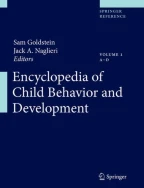
Negative academic self-evaluation is a type of self-reflection process in which students’ evaluative judgments about task performance are inaccurate or maladaptive and or promote dysfunctional regulatory or motivation reactions.
Most theories of self-regulation involve a self-evaluative component whereby individuals examine their performance outcomes and or progress towards personal goals [1]. From a social-cognitive perspective, self-evaluation does not occur in isolation but rather within a broader framework of forethought and reflective decision-making. For example, Zimmerman developed a cyclical model of self-regulation whereby regulated thought and action proceeds sequentially across three phases: forethought (i.e., processes that precede efforts to learn or perform; goal setting and strategic planning), performance control (i.e., processes occurring during learning efforts;.